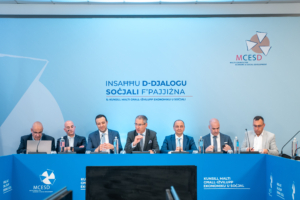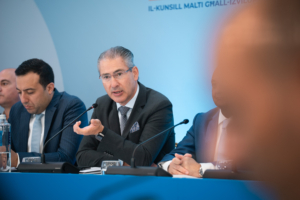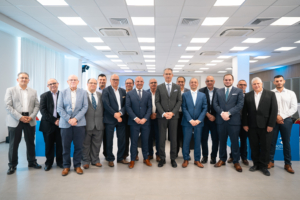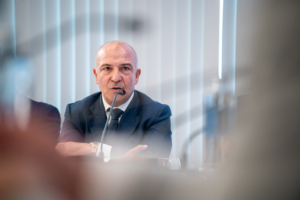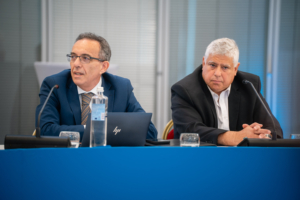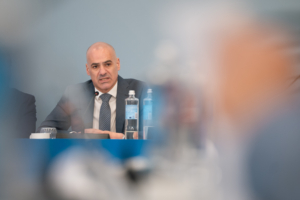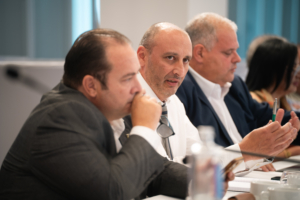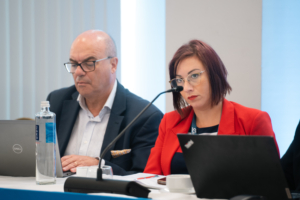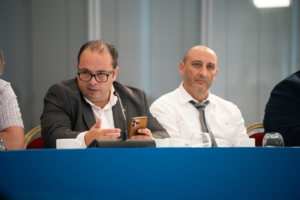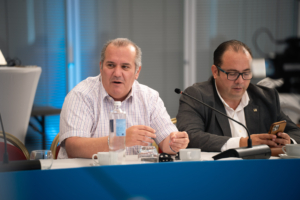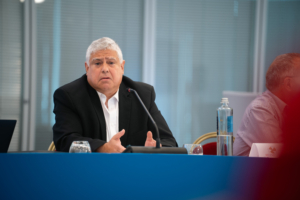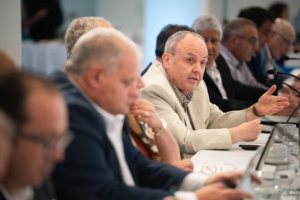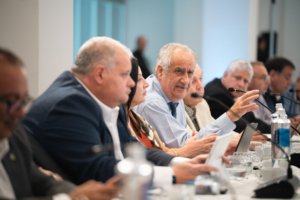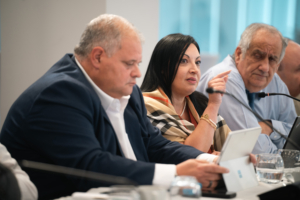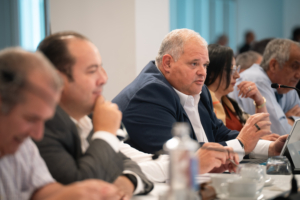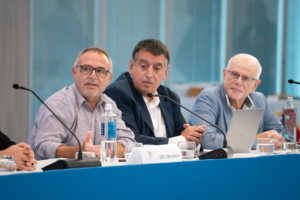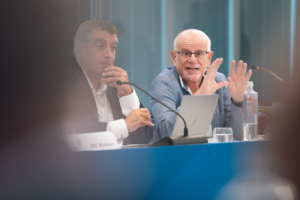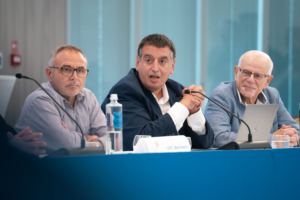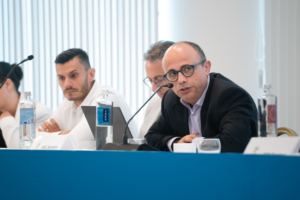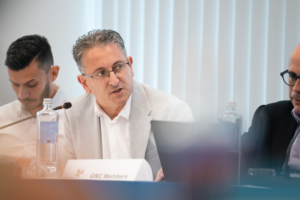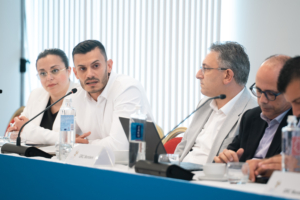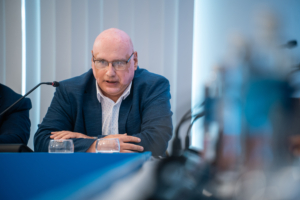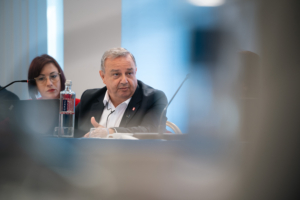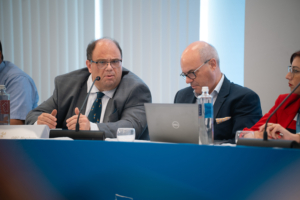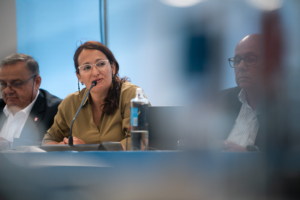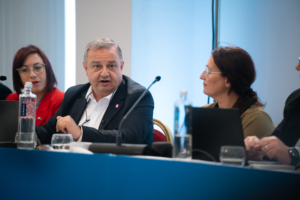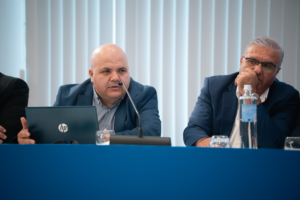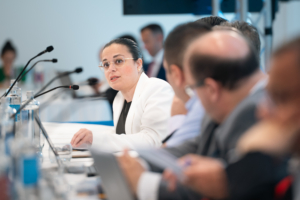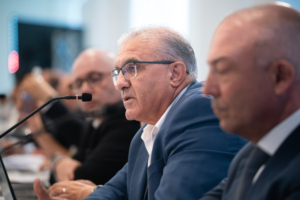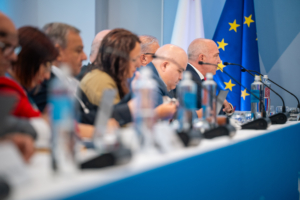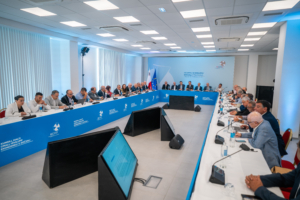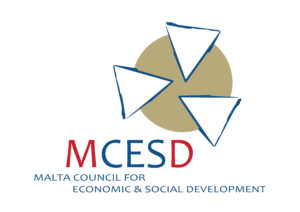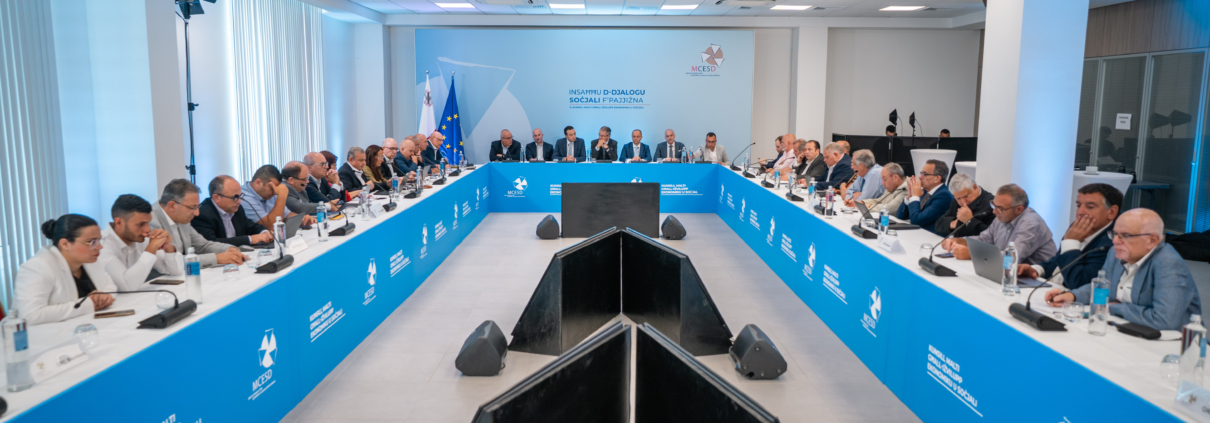Malta Vision 2050 Perspective for Gozo Discussed at MCESD Meeting
During an MCESD meeting, held jointly with the social partners and members of the Gozo Regional Committee (GRC), discussions focused on the Gozo perspective within the Malta Vision 2050 framework. The meeting was also attended by the Minister for Gozo and Planning, Clint Camilleri; the Parliamentary Secretary for Social Dialogue, Andy Ellul; and the Head of Secretariat at the Office of the Prime Minister, Mark Mallia.
MCESD Chairperson, Perit David Xuereb, emphasised Gozo’s potential to be a key driver in the implementation of Malta’s Vision 2050, a vision that not only focuses on economic growth but also on enhancing quality of life and well-being. He explained how the MCESD is committed to ensuring that this vision is understood, embraced, and shared across all sectors of society.
Minister Clint Camilleri noted that Malta’s Vision 2050 builds upon the “Gozo: Island of Villages” strategy launched two years ago. He explained that this strategy aims to improve the quality of life for Gozitans while promoting a more sustainable future. The vision is being developed in collaboration with various stakeholders and sectors, with a strong focus on improving connectivity and boosting economic and tourism development on the island.
The Minister highlighted notable progress in connectivity, including improvements to the Gozo Channel service, the introduction of the fast ferry, and timetable adaptations. He also announced that work on the rural airfield will begin in the coming weeks, describing it as a crucial step to further stimulate economic growth and help retain young people in Gozo.
On tourism, Minister Camilleri described Gozo as a year-round destination. “We wanted to increase tourism, but in a way that suits the island, particularly during the shoulder months. We’ve been working towards that goal through cultural initiatives, which are helping to drive tourism when and where it’s needed.”
He also mentioned various projects that align with the vision, including the Sports and Aquatics Pavilion and investment in the education sector. He reaffirmed the government’s commitment to sustainable development while preserving Gozo’s unique identity, an essential part of its charm and value.
Parliamentary Secretary Andy Ellul underscored the importance of open and inclusive dialogue as a foundation for national progress. He stated that success is achieved when there is honest, structured, and ongoing dialogue with a broad range of social partners, a model the Government has consistently adopted with tangible results.
Dr Ellul described the MCESD meeting as a testament to this collaborative spirit. “I was pleased to witness strong engagement and substantial contributions from all parties involved. Their input into the Vision 2050 process clearly shows that the country is on the right path toward meaningful progress. This Vision is being shaped with responsibility and inclusivity, with the goal of building a future that benefits everyone not just for today, but for future generations. This is a clear example of how social dialogue can drive national development.”
Mark Mallia, Head of Secretariat at the Office of the Prime Minister, spoke about the Government’s commitment to implementing Malta Vision 2050, following a comprehensive consultation process set to conclude in September 2025. “This will be a vision created by and for the Maltese and Gozitan people. A dedicated Vision Implementation Unit will be set up within the Office of the Prime Minister. This team will be responsible for translating the vision into actionable policies, legislation, costings, and yearly KPIs, KPIs that will be publicly accessible in a dynamic, evolving document.”
Social partners and GRC members presented a range of proposals, stressing Gozo’s potential as a testbed for pilot projects in sustainability, quality tourism, and innovative technologies. They insisted that Gozo should not be treated as a carbon copy of Malta but as a distinct region with its own identity and priorities that should be respected and reflected in the national vision.
Further discussions addressed the need to improve Gozo’s infrastructure and connectivity to foster an environment that supports sustainable development and attracts investment. It was agreed that Gozo should continue to promote quality job creation, particularly in sectors such as smart manufacturing and startups, while also reinforcing its rural and social economy.
Other key topics raised included the importance of greater investment in the social sector, increased support for NGOs, better policy coordination, and the protection of Gozo’s agricultural landscape, especially in the face of climate change. All were identified as critical components of a sustainable and resilient future for the island.
Access the presentation here.
Photos:
